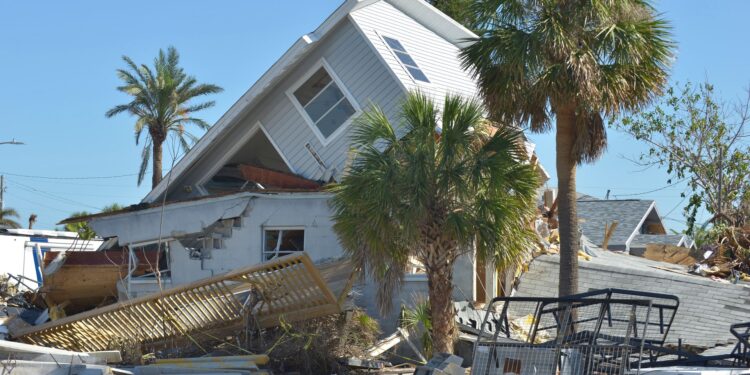
Global climate action plans are “falling miles short” of what is needed to stop climate change from “crippling” economies, the United Nations has warned.
Current national climate plans submitted to the UN should be enough to cut global greenhouse gas emissions by 2.6% from 2019 to 2030, the United Nations Framework Convention on Climate Change (UNFCCC) said in its annual assessment.
This marks only “marginal progress” since the same annual “Synthesis” report last year, when 2030 emissions were forecast to be 2.0% lower than in 2019.
And it is “only a fraction” of what is “urgently needed”, the UNFCCC said, given emissions should plummet 43% by 2030 in order to stave off the worst impacts of climate change, as per the advice from UN climate scientists.
It follows another stark warning last week from the UN Environment Programme, which found the chances of limiting global warming to 1.5C above pre-industrial levels – a key target in the landmark Paris Agreement – were “virtually zero”.
The UNFCCC Simon Stiell said: “Current national climate plans fall miles short of what’s needed to stop global heating from crippling every economy, and wrecking billions of lives and livelihoods across every country.
“Much bolder new national climate plans cannot only avert climate chaos,” he said, but can also generate “stronger investment, economic growth and opportunity, more jobs, less pollution, better health and lower costs, more secure and affordable clean energy”.
Updated climate plans – known as Nationally Determined Contributions (NDCs) – are due by February and will map out measures up to 2035.
The UK government has pledged to submit its updated NDC in November, at the UN climate summit COP29 in Baku, Azerbaijan.
Today’s warning puts more pressure on countries to come up with an ambitious agreement at COP29.
The key issue on the table is finance for developing nations to help them ditch fossil fuels and cope with climate impacts.
These poorer nations may argue that unless rich, polluting countries stump up more cash, their progress on cutting emissions and limiting warming will be limited.
Greenpeace UK’s policy director Dr Doug Parr said floods and hurricanes are “devastating lives and livelihoods around the world in real time”.
These impacts, along with today’s news, paint a “terrifying picture for the fate of humanity” and should give a “slap in the face” to governments, he said.
“Now is the moment for real leadership from the heads of the global community.”
On Saturday, the UK’s climate advisers the CCC warned the new plan should commit to slashing greenhouse gases by 81% in 2035, compared with 1990 levels.
Professor Piers Forster, interim chair of the CCC (Climate Change Committee), said this was feasible with today’s technology.
“Our analysis shows this can be achieved in a way that benefits jobs and the economy,” provided we hit the country’s 2030 target along the way, he said.
“The technologies needed to achieve it are available, at a competitive price, today.
“Investment in low carbon technologies – electric vehicles, heat pumps, and renewables – needs to come now for this target to be achievable.
“Businesses will start to invest when they have confidence in what the Government’s long term policy plans are.”
He urged the government to demonstrate its “commitment to climate” reflected in the budget on Wednesday.
The UK, birthplace of the industrial revolution, is a major historical emitter. Its emissions have peaked and are now falling.
‘Alarm bells’ as greenhouse gases in atmosphere reach new record high
Global emissions are expected to peak before 2030.
Last year their levels in the atmosphere hit a new record high, the UN’s weather body said today in a separate report.
Greenhouse gases have built up faster in the last two decades “than any time experienced during human existence”, the World Meteorological Organization (WMO) said in its annual greenhouse gas bulletin.
Carbon dioxide concentrations in the atmosphere have risen by 11.4% in just 20 years.
It warned there are already signs that this is driving dangerous “feedbacks” that will further increase greenhouse gases, such as more forest fires.
“This should set alarm bells ringing among decision makers,” said WMO secretary general Celeste Saulo.
This breaking news story is being updated and more details will be published shortly.
Please refresh the page for the fullest version.
You can receive Breaking News alerts on a smartphone or tablet via the Sky News App. You can also follow @SkyNews on X or subscribe to our YouTube channel to keep up with the latest news.













